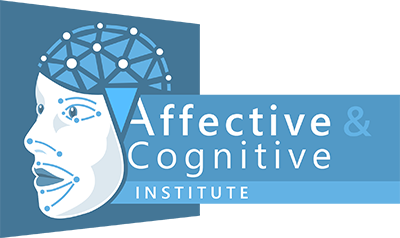The University of Applied Sciences Offenburg is introducing Noneliness App developed at the Affective & Cognitive Institute for its students. The gamified social platform offers a safe and fun way to continue campus life online and stay connected to the university community.
App against loneliness enables virtual campus life
Based on the exchange of text messages in a secure virtual community, the app offers many different ways of social interaction, both between students and with university members. Users can organize meetings, make new friends based on commonalities, set up topic-specific discussion groups or seek psychological support. Motivating game elements make the application additionally entertaining.

All university members are invited to use the platform for free via the link https://gratitude.affective-lab.org.
In addition to being able to find friends, the app also gives them new access to important news from the university such as policies about courses, online events and the operation of campus services. The Noneliness App can be used in web browsers on both desktops and mobile phones.
A common and safe space for socialization
The Noneliness App is part of an ongoing research project in the field of Human Computer Interaction of the Affective & Cognitive Institute ACI at Offenburg University of Applied Sciences, in cooperation with the International Center and financial support from the German Academic Exchange Service (DAAD). The app was specially developed at the university. It does not collect any personal data and fully complies with the GDPR.
“On this platform students can find a common and safe space for socialization. In this way, we ensure that they are not alone in this time of global tension. In addition, we reduce the distance between the students and the institution’s staff, who are concerned about the well-being of our university community,” explains Rogério Bordini, the PhD student behind the application concept.
Never seen the inside of the university
The introduction of the Noneliness App is another measure by the university to find new ways to compensate for the loss of the usual togetherness in campus life. While schools have been teaching face-to-face, at least partially, under special conditions since the outbreak of the Covid19 pandemic, students at German universities are in their third semester of distance learning. This leads to increased social isolation and loneliness for young people who have just left their familiar environment.
The difficulties of everyday pandemic life are added to the common worries and problems of students such as self-organization, pressure to take grades, career decisions and financial insecurities. “The ‘therapeutic agent of social contact’ – often important for overcoming problems or improving disorders – is largely unavailable,” states graduate psychologist Konrad Braun from the Psychotherapeutic Counselling Centre of the Studierendenwerk. Some students complain: “I’ve practically never seen the inside of the university.”
Networking is particularly important for international students
For international students, the situation is often even more stressful. Foreigners, without an existing network and without the opportunity to meet at the university, tend to be constantly worried about their family members.
Vera Vanié, associate director of the International Centre: “To counteract this, we have been offering the app to foreign students for two months on a trial basis. With the Covid19’s relaxation of regulations and the app’s release to all students, they now also have the opportunity to socialize with fellow German students during the lecture-free period, make new friends and go on meetups.”
Be part of it! All university members are invited to use the platform for free via the link https://gratitude.affective-lab.org.

